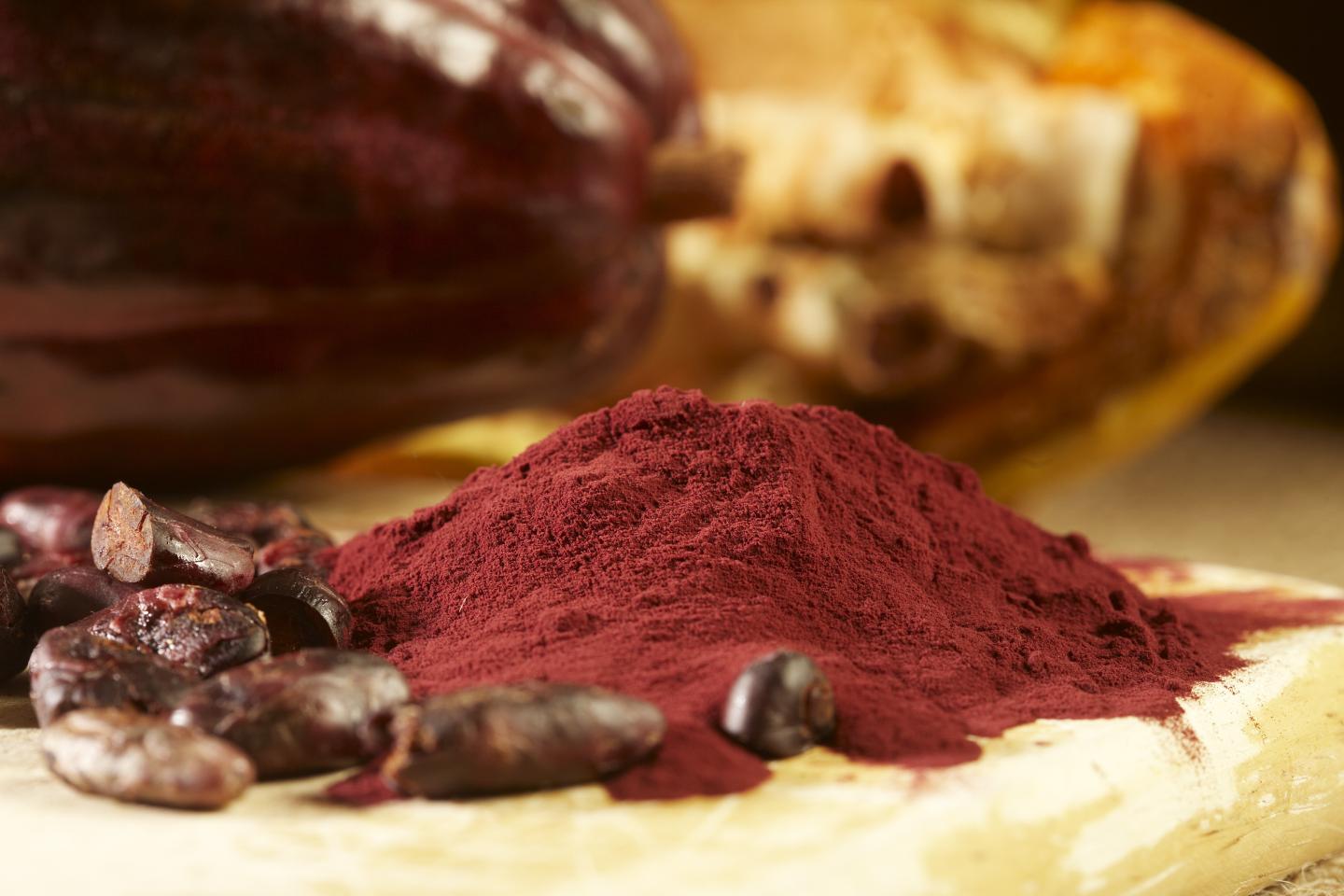Could Flavanols Reverse Age-Related Memory Decline?
Posted on by Dr. Francis Collins

Caption: Cocoa beans and cocoa powder, which are rich in antioxidant compounds called flavanols.
Credit: Mars Inc.
As we get older, remembering new stuff—an updated computer password or the name of that person whom we met last night (or was it two nights ago?)—can bring a busy day to a head-scratching halt. But are these “senior moments” just something that we have to accept? Maybe not.
In a study published in Nature Neuroscience, a research team partially funded by NIH has provided evidence that changes in a specific brain region are associated with age-related memory loss [1]. And they found that they could reverse this loss by boosting activity in this part of the brain, called the dentate gyrus. What’s especially interesting is that this boost came from a drink that was specially formulated to be rich in flavanols, a group of antioxidant compounds found in cocoa beans. Sounds like every chocolate lover’s dream! But let’s drill down a little deeper.
The story of cocoa’s possible effect on cognition began a few years ago when Scott Small, a neurologist at Columbia University College of Physicians and Surgeons in New York, set out to identify the source of normal, age-related memory decline. Observational studies from his lab and others [2,3,4] suggested that aging led to progressively lower activity in the dentate gyrus in various animal models, as well as humans. But no one had tried to reverse these changes in humans.
To take a closer look, Small used an imaging technique called functional Magnetic Resonance Imaging (fMRI) to scan the brains of 35 healthy adults of varying ages. The scans measured blood flow in all regions of the hippocampus, which is the general area of the brain that contains the dentate gyrus. The imaging tests showed that older folks had less blood flow in the dentate gyrus than younger people. Small also compared his fMRI data with those from a previous brain imaging study of people in the earliest stage of Alzheimer’s disease. The comparison revealed that the brain regions affected by normal aging appear to be distinct from those affected in early-stage Alzheimer’s disease.
Those results got Small wondering whether there might there might be lifestyle factors, such as diet or exercise, that could improve the function of the dentate gyrus by boosting its supply of blood He recalled a study in which epicatechin, a cocoa-derived flavanol, improved memory in mice, especially those that were more active [5]. So, Small’s team decided to put that strategy to the test in humans, using special drinks created by Mars Inc., the McLean, Va.-based chocolate company that co-sponsored the study.
The researchers randomly assigned 37 healthy, sedentary adults, ranging in age from 50 to 69, to drink beverages that contained either a high dose or low dose of cocoa flavanols. The high-dose group consumed 900 milligrams of cocoa flavanols daily, including 138 milligrams of epicatechin; the low-dose group consumed 10 milligrams of cocoa flavanols, including about 2 milligrams of epicatechin. Half of each group was assigned to a regimen of aerobic exercise, while the remaining half remained sedentary.
Prior to the start of the study, Small’s team used a series of pattern-recognition tests to gauge participants’ memory skills and took baseline readings of blood flow to the hippocampal areas of their brains. Three months later, the team scanned and retested the participants. To Small’s surprise, all individuals in the high-flavanol group, regardless of whether they had exercised regularly, displayed increased blood flow in the dentate gyrus and showed significant improvements in memory skills.
There have been lots of past claims of special diets or supplements that enhance memory, but most lack credible scientific evidence. So I tend to be inherently skeptical of such reports — but I find this study intriguing. Nonetheless, I think everyone agrees that more research is in order before we all run out to the candy store. That wouldn’t work anyway — just to match the memory-boosting levels of flavanol consumed in this study, you’d have to down at least 25 candy bars a day! The negative health impact of all the fat and sugar in those bars would undoubtedly outweigh any potential memory benefits.
It’s also worth remembering that, as is the case for all scientific research, these results will need to be reproduced in larger studies and by other researchers. Already, the Columbia team is recruiting another 120 people to determine exactly how much flavanol is needed to improve memory, as well as to investigate how quickly these dietary compounds work and how long their effects last. Another important question is whether the epicatechin and other flavanols found in cocoa possess unique memory-boosting powers, or if similar compounds found in green tea, blackberries, black grapes, and other foods can also rejuvenate the aging brain.
References:
Links:
Memory, National Institute on Aging
The Taub Institute for Research on Alzheimer’s Disease and the Aging Brain
NIH support: National Institute on Aging
Share this:
- Click to share on LinkedIn (Opens in new window)
- Click to share on Pinterest (Opens in new window)
- Click to share on Tumblr (Opens in new window)
- Click to share on Reddit (Opens in new window)
- Click to share on Telegram (Opens in new window)
- Click to share on WhatsApp (Opens in new window)
- Click to print (Opens in new window)

Please tell us what these foods are. Thank you
Thank you, I was looking for this article. Age-Related Memory Decline.
Yes absolutely…..I take 6 grams of pure Citrus BioFlavanoids daily. Six three times daily repairs hemmeroids or torn hernia, any injury involving veins, muscles and nerves. I notice better brain functions, less immediate forgetfulness, and no injury pain. They work to cure a cold or fluey symptoms with the same dosage and frequency. Good luck.